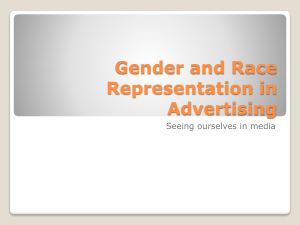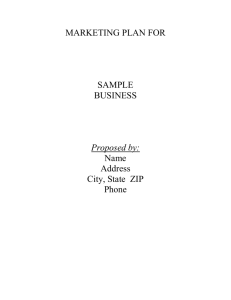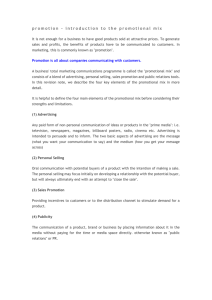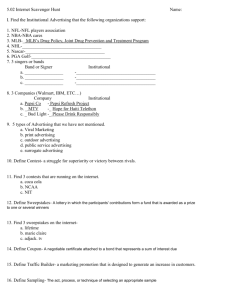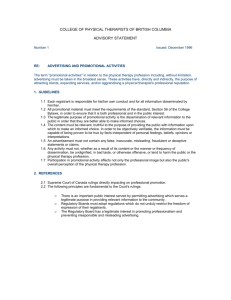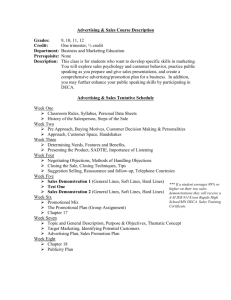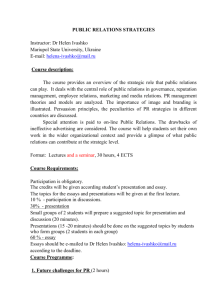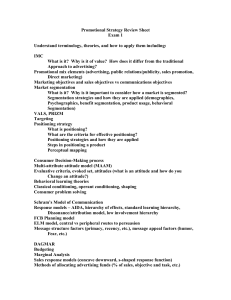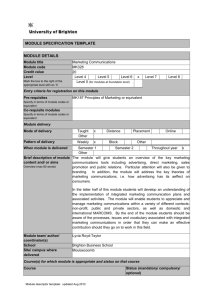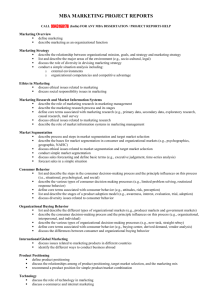UG module template 2007
advertisement
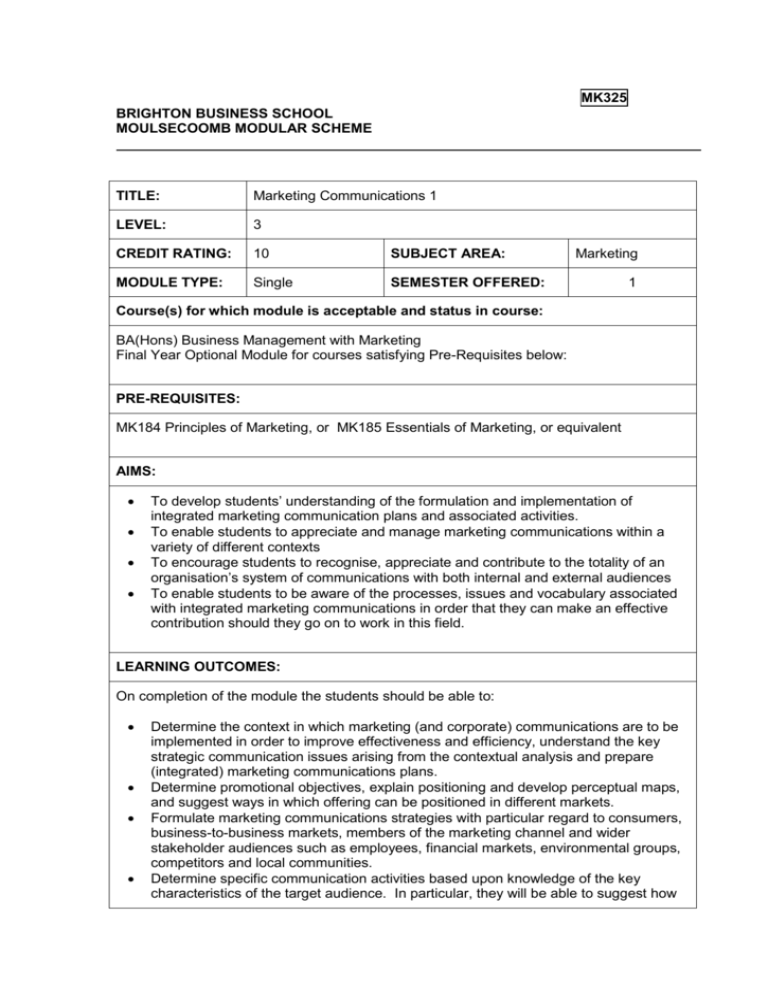
MK325 BRIGHTON BUSINESS SCHOOL MOULSECOOMB MODULAR SCHEME TITLE: Marketing Communications 1 LEVEL: 3 CREDIT RATING: 10 SUBJECT AREA: MODULE TYPE: Single SEMESTER OFFERED: Marketing 1 Course(s) for which module is acceptable and status in course: BA(Hons) Business Management with Marketing Final Year Optional Module for courses satisfying Pre-Requisites below: PRE-REQUISITES: MK184 Principles of Marketing, or MK185 Essentials of Marketing, or equivalent AIMS: To develop students’ understanding of the formulation and implementation of integrated marketing communication plans and associated activities. To enable students to appreciate and manage marketing communications within a variety of different contexts To encourage students to recognise, appreciate and contribute to the totality of an organisation’s system of communications with both internal and external audiences To enable students to be aware of the processes, issues and vocabulary associated with integrated marketing communications in order that they can make an effective contribution should they go on to work in this field. LEARNING OUTCOMES: On completion of the module the students should be able to: Determine the context in which marketing (and corporate) communications are to be implemented in order to improve effectiveness and efficiency, understand the key strategic communication issues arising from the contextual analysis and prepare (integrated) marketing communications plans. Determine promotional objectives, explain positioning and develop perceptual maps, and suggest ways in which offering can be positioned in different markets. Formulate marketing communications strategies with particular regard to consumers, business-to-business markets, members of the marketing channel and wider stakeholder audiences such as employees, financial markets, environmental groups, competitors and local communities. Determine specific communication activities based upon knowledge of the key characteristics of the target audience. In particular, they will be able to suggest how knowledge of perception and attitude, level of perceived risk and involvement can impact upon marketing and corporate communications. Select, integrate and justify appropriate promotional mixes to meet the needs of the marketing communication strategies. Determine appropriate levels of marketing communications expenditure/appropriation. Evaluate a variety of promotional campaigns drawn from different sectors. Be aware of the impact and contribution technology makes to marketing communications. Be appreciative of and sensitive to issues associated with crossborder marketing communications. Advise on the impact corporate communications can have on both internal and external audiences and their role in the development of integrated marketing communications. CONTENT: Introduction to Marketing Communications Introduction to Consumer Behaviour and Communications Theory Overview of Marketing Communications Planning and Strategy Industry Overview (Role of creative briefs, pitching process and agency structure) Product Branding and Positioning Corporate Branding and Positioning Advertising and Media Selection Sales Promotion: From BOGOFs to Cause-related Marketing PR: Sponsorship, Publicity and Crisis Management Direct Marketing: Direct Mail / DR media and viral marketing TEACHING & LEARNING STRATEGIES: Lectures will introduce students to the theory of marketing communications. Seminars will have linked exercises based on articles and other materials. Lectures: 10 Seminars: 10 Workshops: 0 Open Learning: Self Study: Assessment: 0 50 30 Total: 100 LEARNING SUPPORT: Indicative reading: The latest editions of: Fill, C., Marketing Communications: Contexts, Contents and Strategies, Prentice Hall. Kotler, P., Marketing Management: Analysis, Planning, Implementation and Control, Prentice Hall. Parente, D.E., Advertising Campaign Strategy, Thomson Yeshin, T., Advertising, Thomson Yeshin, T., Sales Promotion, Thomson Journals Journal of Marketing Communications Journal of Marketing Journal of Advertising ASSESSMENT: 100% In-class test, based on the theories of how advertising works. BRIEF DESCRIPTION OF THE MODULE: The module will give students an overview of the key marketing communications tools including advertising, direct marketing, sales promotion and public relations. Particular attention will also be given to branding. In addition, the module will address the key theories of marketing communications, i.e. how advertising has its affect on consumers. Area Examination Board: Marketing External Examiner: Charles Dennis Faculty: Brighton Business School; MIS. Site where delivered: Moulsecoomb Module Writer(s): Lyvia Royd-Taylor and Matthew Wood Date of First Approval: 2005 Version Number 5 Date of Last Revision: May 2007
